Matzo made in Ukraine: a Passover dispatch from Dnipro
I’ve been to the small factory in Dnipro which is exporting kosher matzo around the world - despite the huge challenges of working during Russia’s war.
It was doubly appropriate to be in Dnipro ahead of Passover this year: the city with the biggest Jewish population in Ukraine, and the city where my grandparents had lived, when it was called Yekatorinoslov, from where they had left for England almost 120 years ago. I met the city’s chief rabbi, Shmuel Kaminetsky, who generously invited us to breakfast in the cafe at the giant Menorah Centre, a huge hub for the Jewish community which boasts a hotel, two restaurants, a Holocaust museum and even a hospital. The syrniki were excellent.
But I had come to Dnipro to visit the city’s famous matzo factory, Tiferet HaMatzot, which translates as ‘The Beauty of Matzo’. For 21 years they’ve made hundreds of kilos of matzo by hand under strict kosher conditions: and not without almost impossible challenges to overcome. In Soviet times the baking and eating of matzo was banned and last Passover the Dnipro bakery was almost hit by a Russian drone which fell right next door. David, the mashgiach, shows me some CCTV on his phone of the blast: fortunately the fire was put out before any serious damage was caused to the building. Despite the long years of war, the electricity cuts and blackouts and missile bombardments - the bakery is working even harder, exporting matzo to countries across the world, from the United States to Africa and even Israel.
The first thing you notice is the big clock on the wall, which counts down from 18 minutes - the total amount of time it must take from the moment that water comes into contact with the flour to the finished matzo. That’s because to be properly kosher, the matzo must not be allowed to ferment or rise in any way - and that means a complicated set of procedures which in this factory, run seamlessly like clockwork.
The flour is not just any flour: it comes from wheat which must be harvested by Jewish people, who must switch on the buttons to make the combine harvesters work. The grain is run through a mechanical sieve to get rid of any bits which aren’t good enough quality, before it is milled and packed away in sacks, well away from any moisture.
In the matzo factory, there is a special room where the flour is kept, with a lady weighing out 1400g portions into a plastic jug, waiting for a bell to ring so she can pass it through a hatch where it gets mixed with water, and the matzo making process can begin. Six years of experience means she barely needs to look at the scales to measure the exact amount every time.
Next door you can see there is hard physical work involved, pummeling this stiff flour and water mixture into dough: one job involves slamming it with a heavy metal pole, by operators who constantly jump up and down to put their full weight into it “It’s like the plasticine we played with as children”, says David,”it gets softer and then we can work with it.” Sausages of dough are cut into portions and rolled out swiftly by hand, into thin circles, which are then docked with a metal gadget which stamps rows of holes to make certain that they don’t puff up in the oven.
Every so often David checks the tables, and workers show him their hands to make sure they’re completely dry: then we walk through to the ovens where the most technically tricky jobs are. The bakers who work here have to be religious Jews, observing Shabbat and all the laws of kashrut. They are also impressively expert, flipping the rounds of dough off long poles into the oven, then barely 30 seconds later pulling them out, charred at the edges, giving off puffs of steam as they clatter onto the counter to cool. Any broken pieces are not wasted, but get ground up into matzo meal.
The rest, packed away in their distinctive boxes, are ready to be sold, mostly abroad - and it’s a real source of pride that Jewish communities on the other side of the world are eager to buy Ukrainian matzo. “We are proud that in America our matzo sells out in 10 minutes, because it’s such high quality and tastes so good”, David says.
It feels almost powerful to be standing here, watching the almost balletic grace of the baking process - in this place which survived Soviet repression - and has not stopped working despite the worst of Russia’s war. This Passover, the Dnipro matzo factory is a symbol of Ukrainian resilience - and a beacon of hope for Jewish communities around the world. Chag Pesach Sameach!

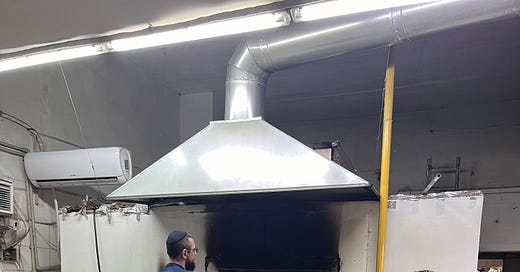



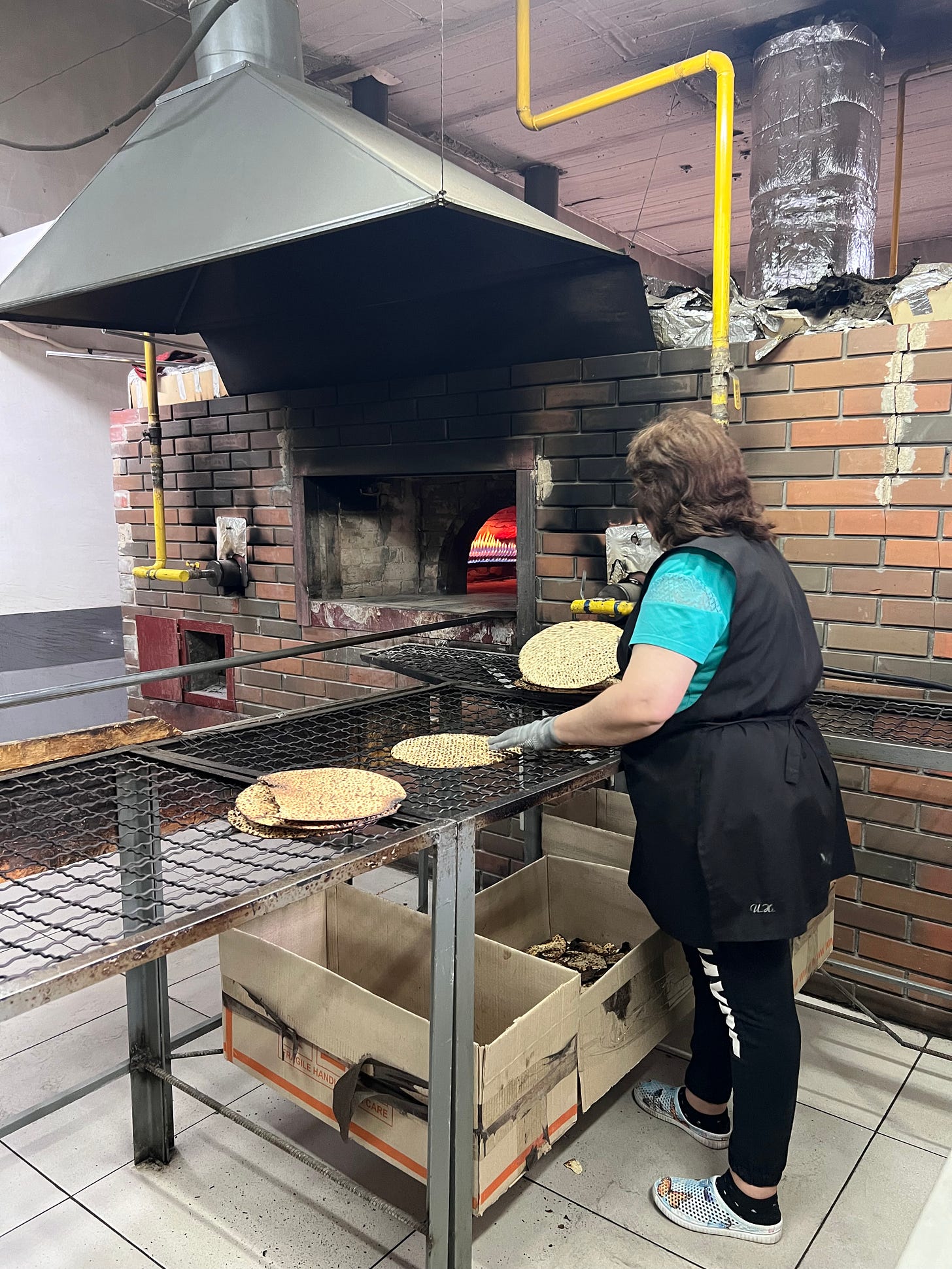
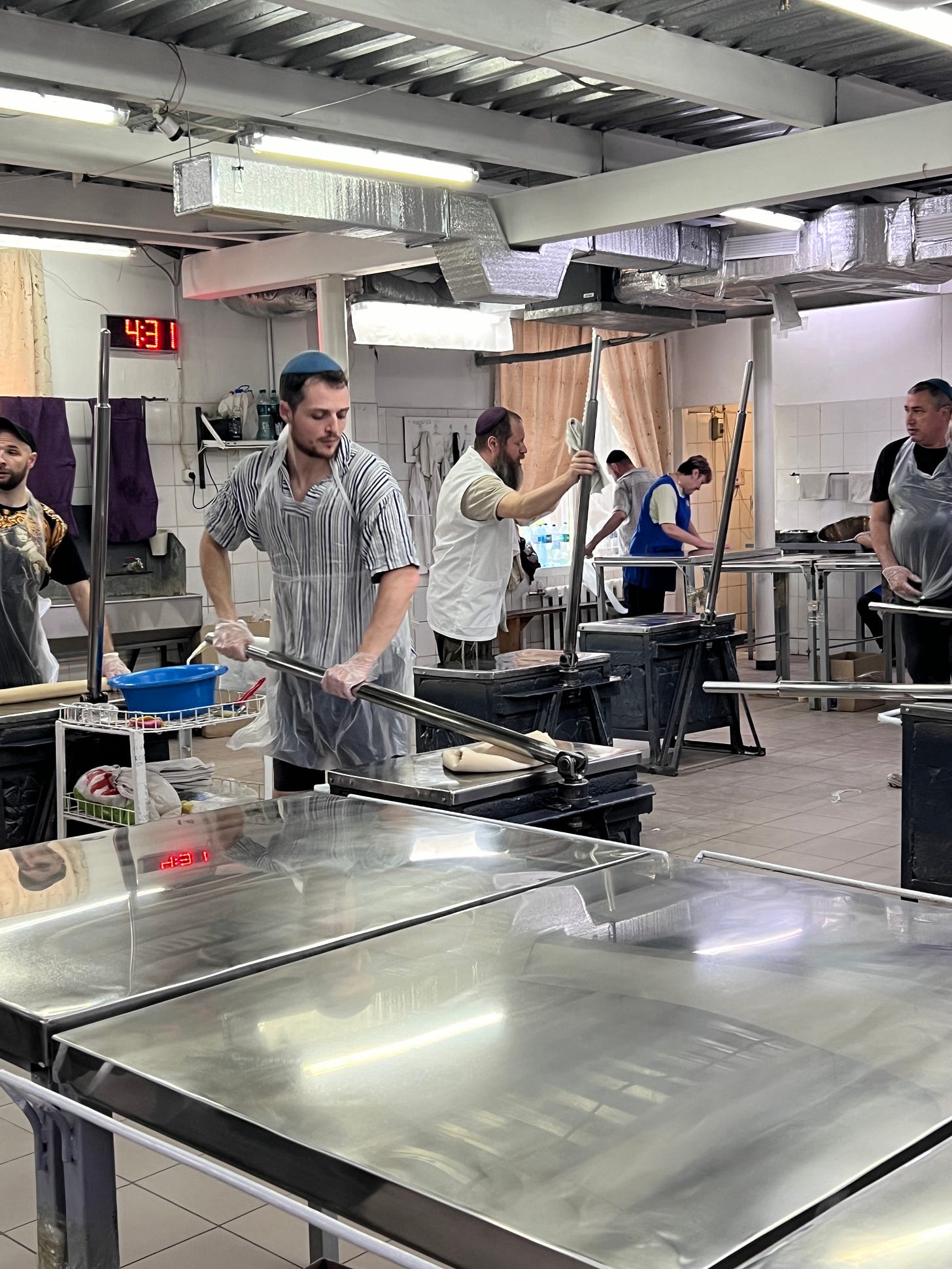
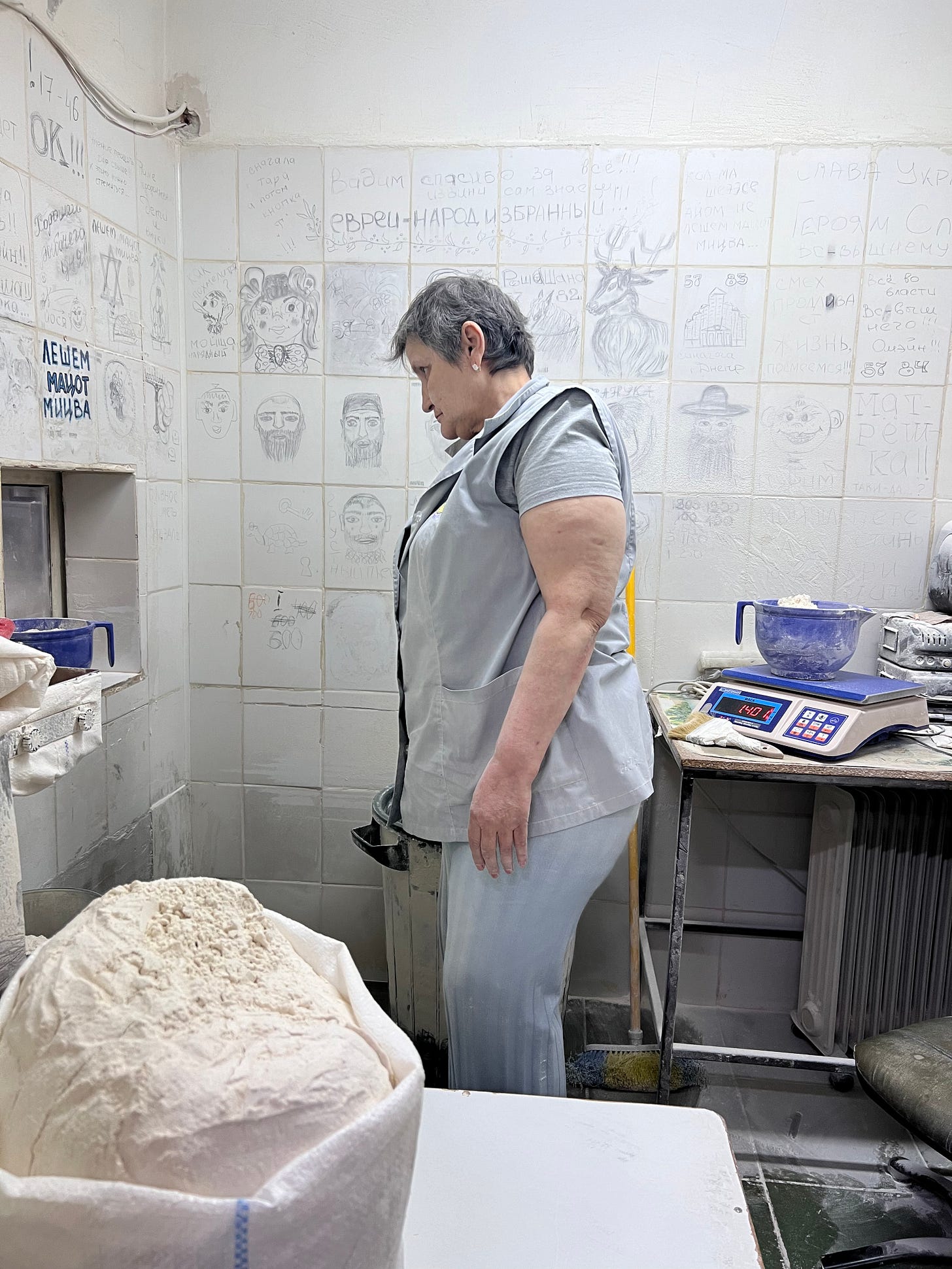
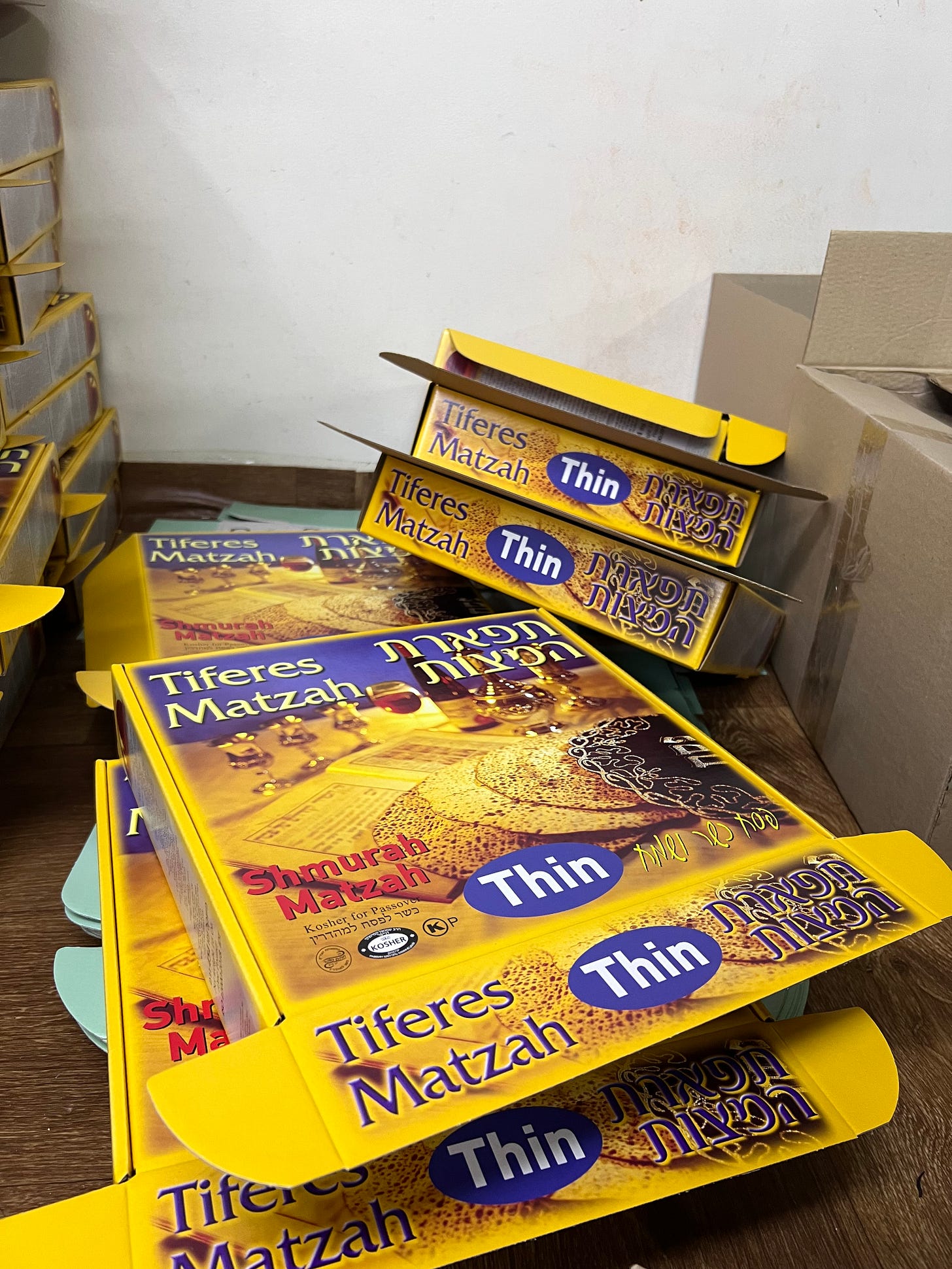
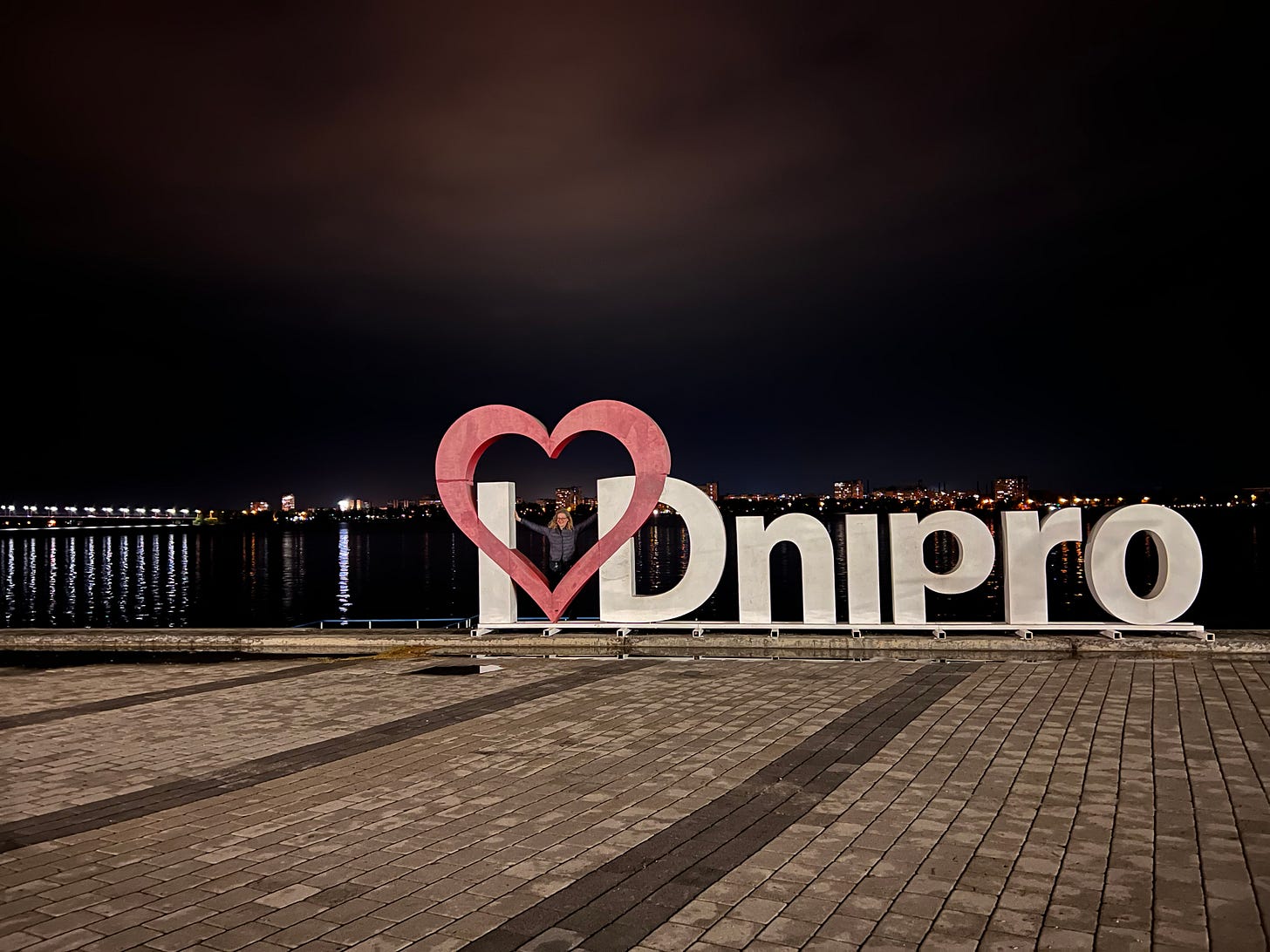
My mother brought a box of Shmura matzah to our Seder Monday night in Miami, Florida. I just checked the box, and it is indeed Tiferet matzah from Dnepropetrovsk, Ukraine! Thank you for your wonderful posts.
Wonderful story! Wonder if it’s available in California.